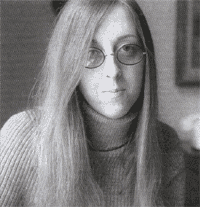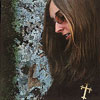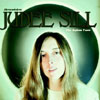Uncut Magazine

She looked like the typical early Seventies singer-songwriter, a flaxen-haired Asylum labelmate to Joni Mitchell. She left two albums of flawless, enigmatic songs, filled with imagery worthy of William Blake, and harmonies that sounded like a collaboration between Brian Wilson and Bach.

But Judee Sill was hardly an innocent Californian flower-child. "I spent most of my life hiding under a pinball machine in a bar in Oakland", she claimed, and that was merely a prelude to a tale that read like a sequel to Natural Born Killers. After her father and brother died, she ran away at 15, and went through an illegal marriage ceremony with a local gangster. They robbed stores until he was sent to prison, her to a reform school.
Through the Sixties she tacked between a promising folk career and a nightmare existence as a $150-a-day heroin addict. There are rumours of prostitution, spells in a mental institution, even a persistent myth that she regularly smuggled drugs across the Mexican border.
Yet her music, first aired when the Turtles recorded her song "Lady-O" in the late Sixties, was spiritual and breathtakingly beautiful. Her eponymous 1971 debut album attracted rave reviews, and she toured with luminaries Crosby, Stills and Nash and Roy Harper. The record's highligh was "Jesus Was A Crossmaker", an instant standard cut by everyone from Linda Ronstadt to the Hollies. But every song glowed with self-assurance, as Sill reeled off complex melodies and wove symbolic poetry out of a puzzling and personal set of lyrical images.
"David Geffen I love you", she announced on her debut album, but after the equally striking, heavily orchestrated, Heart Food LP flopped in 1973, Geffen let her slip off the Asylum roster. Sill had effectively sabotaged her career by refusing to play any more support slots.
At this point she mysteriously vanished from the public eye. In the early nineties, her on-time producer told this writer where she'd gone. "She died, overdosed, around 1974", he told me, sadly. "She was a great talent". And he shook his head to show that the subject was too painful to discuss any further.
Alternative sources reckon that Sill either dragged herself to the end of the seventies as a drug addict, overdosed on heroin in Mexico during spring 1973, or in California that November, or maybe overloaded on coke in the early Eighties. Either way, her rumoured third LP, Tulips from Amsterdam appears to be a mirage, leaving Heart Food as the sole legacy of a tormented artist who may just have been the finest songwriter of her generation.
©Uncut Magazine









